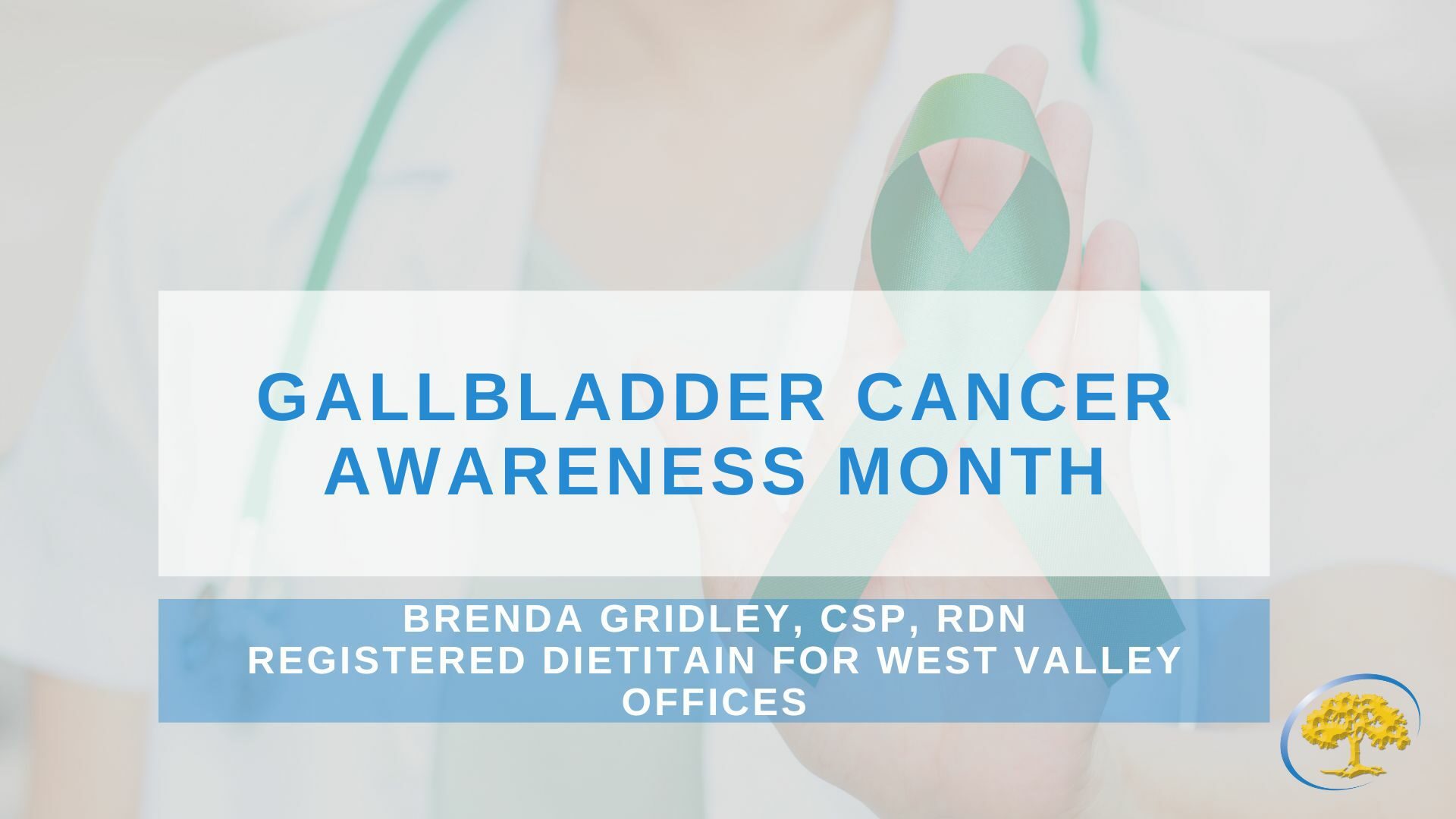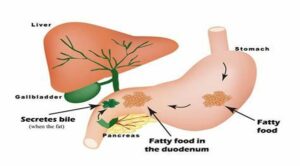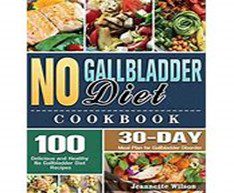
Posted 2 years ago
Gallbladder Cancer Awareness Month
Gallbladder cancer is the 20th most common cancer worldwide. It accounts for only about 1% of incidence of all cancers, yet survival rates are low because it is often not diagnosed until the advanced stages. The gallbladder is a small sac- like organ that forms part of the biliary tract. Bile produces in the liver, flows into the gallbladder where it is stored and concentrated until released into the small intestine.
Risk Factors:
increases risk of gallbladder stone which increase the risk of gallbladder Cancer
increases levels of hormones, such as insulin and insulin like growth factors which can encourage development/progression of Cancer
Body fat also stimulates a general in inflammatory response, which may contribute to the development of several cancers.
Avoiding rapid weight loss as this can put a strain on the liver and gallbladder and may increase the risk of gallstones. It is best to lose weight steadily and avoid excessive periods of fasting.
Avoiding allergens: In some people, an allergic reaction can trigger gallbladder symptoms. Consider allergy testing.
Smoking tobacco can contribute to gallbladder dysfunction, including gallbladder Cancer.
Female sex
The gallbladder can develop several disorders including severe pain, jaundice, gallstones, gangrene, pancreatitis, and even cancer when an unhealthy diet is prolonged. While there is no specific diet for a healthy gallbladder, following some guidelines can help keep the gallbladder healthy and functioning well.
Foods to Support Gallbladder Health
Lean protein or Plant Based Foods
Protein is essential for the repair and growth of body tissues. Red meat and dairy products are good sources of protein, but they can also be high in fat, sugar and salt which can put stress on the gallbladder.
Low-fat protein foods option.
poultry
fish
nonfat dairy products
nuts and seeds
soy and soy products
legumes, such as beans and lentils
dairy alternatives, such as soy, almond and oat milk
Fiber
Fiber supports digestive health, and it can decrease the risk of gallbladder disease by enhancing the movement of food through the gut and lowering the production of secondary bile acids. Biliary or gallbladder sludge is a substance that increases the risk of developing gallbladder disease. It can build up in people who fast or lose weight quickly. Those who followed the high fiber diet accumulated less gallbladder sludge, which reduced their risk of developing gallbladder disease.
Fiber sources:
fruits
vegetables
legumes
nuts and seeds
whole grains, flax
Healthful fats
Unsaturated fats, such as omega-3, may protect the gallbladder.
Sources include:
cold-water fish
nuts, such as walnuts
seeds, such as flaxseed
oils from fish or flaxseed
Coffee
Substances in coffee may have various benefits for gallbladder function, including balancing certain chemicals and stimulating the action of the gallbladder and intestinal activity. Moderate consumption is 1-2 cups a day.
Calcium
Calcium Sources:
dark, leafy greens, such as kale and broccoli
nonfat dairy foods, such as yogurt, cheese, and milk
fortified dairy alternatives, such as almond or flax milk
sardines
fortified orange juice
Vitamin C, Magnesium and Folate
Vitamin C sources:
red and green peppers
oranges and other citrus foods
kiwifruit
broccoli
strawberries
tomatoes
Vitamin C is a water-soluble vitamin, which means that cooking in water may remove some of it from the food. Fresh, raw fruits and vegetables are the best sources.
Magnesium Sources:
almonds and cashews
peanuts and peanut butter
spinach
beans, including black beans and edamame
soy milk
potato
avocado
rice
yogurt
banana
Folate Sources:
beef liver
spinach
black-eyed peas
fortified cereals
asparagus
Foods to avoid
Refined carbohydrates
Carbohydrates are a key part of most people’s diet, and unrefined carbohydrates, such as whole grains and oats, can provide essential nutrients. However, refined carbohydrates may increase the risk of gallbladder disorders due to high sugar content
Carbs to limit or avoid include:
added sugars and sweeteners
white flour
other refined grains
premade baked goods, including cookies and cakes
candy and chocolate
Unhealthful fats
The gallbladder produces bile that helps the body digest fats. A high intake of fats, and especially saturated and trans fats, may put extra strain on this process.
Unhealthful fats are present in:
red, fatty meats
processed meats
other processed foods
full-fat dairy products
fried foods
many fast foods
premade salad dressings and sauces
premade baked goods and desserts
chocolate and other candies
ice cream



